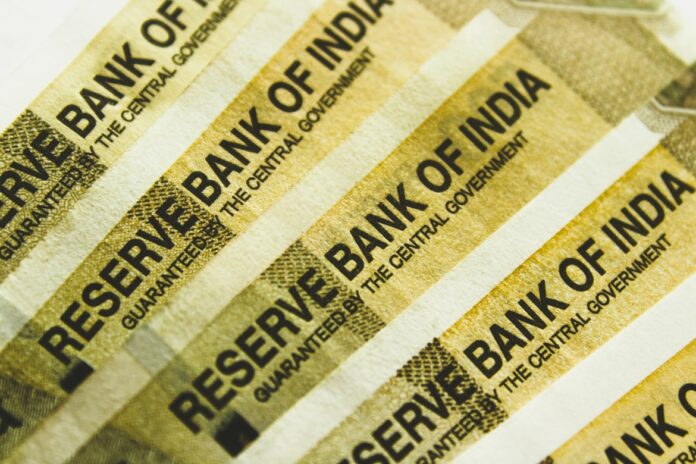
Even though talks about digital currencies and their legalization are much more common these days, we can see that a lot of people are still ambiguous about what it will represent. You will agree that it is not reasonable to expect that all countries will come with a single solution. While some of them may share the same solution, we can see that most of them will have a unique solution. We can see that some of them have decided on which method they will implement.
At the same time, we can see that there are countries that have ruled against making digital currencies legal. Instead, these will make them completely illegal on their territory. Sure, the traders will have some room to cash out on the money they already have. Still, future trading will no longer be a possibility. That’s why so many people are out there are disappointed with this fact.
Following the closure of crypto exchange bank accounts in India, banks are also warning consumers against dealing with this sort of money. Some banks have begun inquiring about bitcoin transactions made via their accounts to discourage clients from trading in cryptocurrencies. If you start following local newspapers and magazines, you will see that this is something the government has talked about for months.
IDFC First Bank is the most recent institution to discontinue services to firms. The measure is just temporary while the bank conducts increased due diligence on banking support for exchanges. Since May, ICICI Bank, Yes Bank, and Paytm Payments Bank have made similar choices. Other players in the country’s financial market will likely follow this example in the future.

ICICI Bank, one of India’s largest private lenders, has tightened its grip on trading. Customers were advised not to invest in digital assets using overseas remittances, according to the bank. This comes many weeks after major banks stopped financial services to local exchanges, essentially shutting out dealers from international markets. While it was quite surprising for many, we can see that this was talked about by the government and important financial institutions.
Cryptocurrencies are a source of concern for banks since they are a popular vehicle for money laundering, illicit purchasing, and contraband activities. There are 15 million crypto investors in India, with digital assets worth Rs 10,000 crore. Just think about the situation when a market like this will be closed in the nearest possible future. Alongside China, we can see that another large market has closed for digital currencies.
In India, 15 commercial and state-owned banks have formed the Indian Banks’ Blockchain Infrastructure Company Private Limited (IBBIC). To begin, they intend to use blockchain to process Letters of Credit (LCs), GST invoices, and e-way bills to speed up the present system. As you can see, this concept has been integrating into these institutions for quite a bit. That’s why many thought this integration will become even higher in the future.
BitcoinRevolution offers you the most reliable and regulated trading platform services. We are talking about a tool that has been in use for a long time now, and we can see that it is more efficient than the vast majority of solutions you will find online. Not to mention that it has been proved as reliable. Meaning, it will not be faced with some security problems down the road.

HDFC Bank, a subsidiary of the Housing Development Finance Corporation, and the State Bank of India (SBI) have warned its customers not to trade in uncontrolled digital currencies such as Bitcoin. The choices of the banks are made inside, with little transparency or direct communication alerting people to the change. For this reason, we can see that this judgment wasn’t proper. We mean, traders didn’t have any say in the decision. So, they are now forced to sell their digital properly and cash out.
The Reserve Bank of India (RBI) has clarified that there is no formal prohibition on cryptocurrencies in India. Last month, the RBI reiterated that banks and other regulated businesses should not reference its April 2018 rule prohibiting banks from dealing with virtual currencies. But when you take a look at the situation from the neutral perspective, you will see that it doesn’t matter if there is no formal prohibition when you don’t have a way to trade.
Under the supervision of the Internet and Mobile Association of India (IAMAI), cryptocurrency exchanges have committed to self-regulation. This encompasses a code of manner that requires all cryptocurrency exchange associates to willingly obey KYC, tax, and other regulations. The board and exchanges will create standards to accommodate frequent audits and inspections, a consumer redressal mechanism, and fraud prevention with a formal structure.
The Indian government is still working on a bill that would prohibit the use of all other than those issued by the Reserve Bank of India. Some banks, such as IDFC Bank, have said that they will not give services to cryptocurrency-based businesses. These types of reactions frighten investors for the wrong reasons. However, it is important to say that we don’t have all the relevant information. So, there is no point in being scared of the situation before we understand the situation completely. We will just have to wait and see
According to HDFC Bank, digital currencies might emerge as a viable asset class. As per the bank’s treasury research team, it’s only a matter of time until Indian investors get legal access to cryptocurrencies. WazirX claimed that its trade volumes surpassed $2 billion in February of this year. The administration is still working on drafting a bill. It might be quite a while before we get some relevant information that we can use.

Closing Notes
Cryptocurrency is performing admirably and has established its presence in the mainstream media. India’s financial officials aren’t only hesitant to adopt contemporary technology; they’re also not dismissive of it because it’s new. The RBI is concerned about the local’s privacy and security and wants to ensure that its citizens are not jeopardised by something volatile. No one can anticipate what will happen in the market in the next 24 hours.
The country has repeated many times that it’s not banning the currency in the country as they are preparing a proper bill for it. Admittedly, crypto investors in India are confused with the situation as they are told that it’s not banned, but banks are making it difficult to continue with the clients’ trades. The lack of possibilities is something that truly scares traders out there.
As of writing this article, Indian traders are advised to stay updated on the situation regarding the legality of trading within the country. When you think about it, there is no other way to understand the market besides taking a frequent update on the latest news. So, be sure to follow these updates frequently on the relevant sites. Otherwise, you will not have a situation to understand the situation most efficiently.








